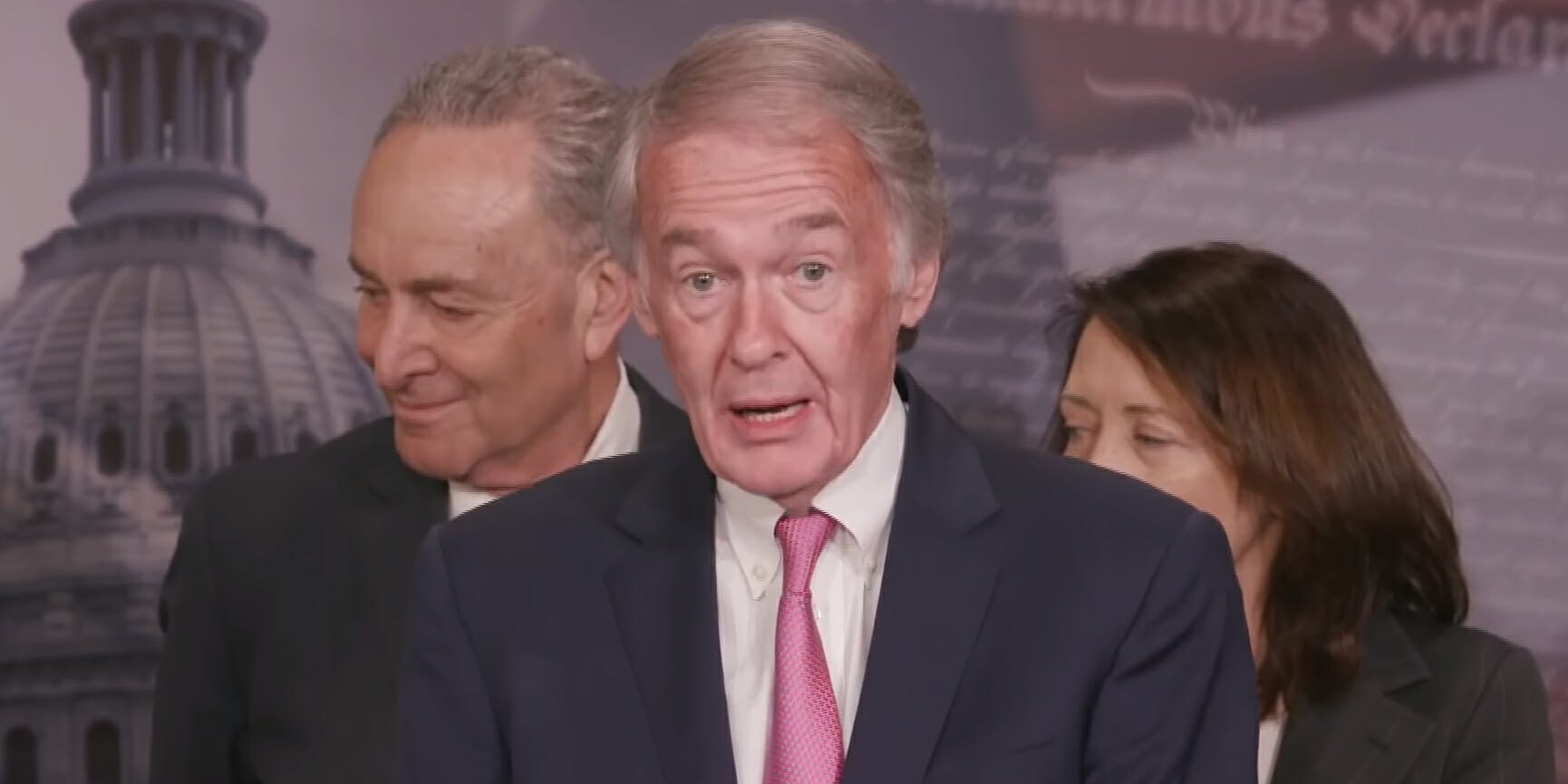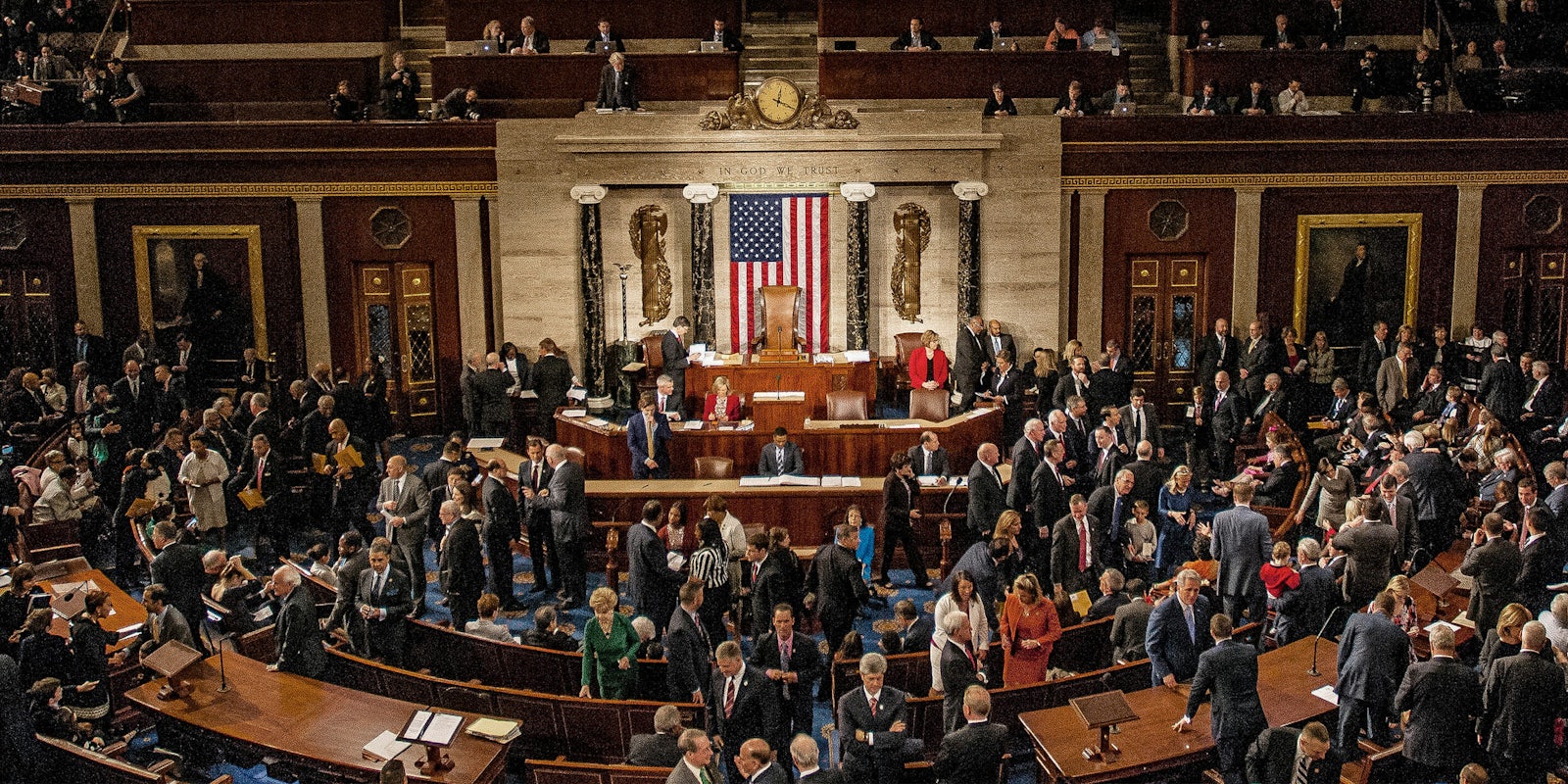Shortly after the Federal Communications Commission (FCC) voted to rescind net neutrality last year, lawmakers and activists promised to push back in an effort to save the protections. As net neutrality advocates launched petitions, protests, and initiated lawsuits, lawmakers in Congress devised a way to use the Congressional Review Act (CRA) as a way to try and overturn the FCC’s decision.
The CRA is a mechanism that allows Congress to overturn federal agencies decisions during a certain time frame. As the fight rages on in Congress to gather enough votes to support the CRA, here is a refresher on what you should know about the law and how it can be used to save net neutrality.
What is the Congressional Review Act?
The Congressional Review Act was passed in 1996 and essentially gives Congress the ability to begin a process to overturn federal agencies decisions. They have to start the process within a 60-day window.
First, according to a summary of the act on the U.S. Senate’s website, the Senate must bring about a discharge petition, which only needs a simple majority to pass and then forces a full vote in the chamber. A similar effort in the House can follow the Senate’s lead after a vote.
The CRA has been used several times by Republicans to repeal regulations from President Barack Obama’s administration.
In May 2017, Republicans used the Congressional Review Act to overturn 14 regulations enacted by Obama at the end of his last term as president. The regulations regarded coal mining runoff and bear hunting in Alaska, among other things, according to the Washington Times.
Now, however, Democrats—who are in the minority in Congress—are trying to use the rule to overturn the FCC’s net neutrality decision. To pass, a CRA effort only needs a simple majority to pass in both chambers of Congress, making some net neutrality proponents optimistic the tool can be successful.
How can the CRA help save net neutrality?
The CRA effort has already picked up steam in Congress’s effort to save net neutrality.
In May, Sen. Edward Markey (D-Mass.) announced his intention to file a discharge petition using the CRA to overturn the FCC’s decision.
During a vote in mid-May, all of the Democrats in the Senate and three Republicans—Sen. Susan Collins (R-Maine), Sen. Lisa Murkowski (R-Alaska), and Sen. John Kennedy (R-La.)—broke with the rest of their party and voted in favor of it.
Josh Tabish, a technology exchange fellow at internet rights advocacy group Fight for the Future, said that the CRA represents a better option to save net neutrality than a legislative fix, as some lawmakers have suggested.
“Alternative legislation in this Congress is a trap—it’s exactly what the internet service providers want,” Tabish told the Daily Dot in an email. “ISP-friendly lawmakers like representatives Marsha Blackburn and Greg Walden are waiting in the rafters to gut any good net neutrality bill that hits the House Energy & Commerce Committee’s desk. Any net neutrality legislation from this Congress is much more likely to permanently undermine net neutrality than save it.”

The net neutrality CRA passed in the Senate, what does it look like in the House?
Rep. Mike Doyle (D-Penn.) introduced a discharge petition in the House shortly after the Senate’s vote in May. Following the Senate’s vote, Doyle told the Daily Dot that “grass roots activism” would give lawmakers a “real shot at getting this thing out of the House.”
Currently, 177 lawmakers have signed onto it, making it 41 votes shy of forcing a full vote in the House, similar to what happened in the Senate.
Getting the necessary votes to form a simple majority on the discharge petition has been a focus of lawmakers and net neutrality advocates for months.
In July, the first Republican in the House, Rep. Mike Coffman (R-Co.) signed onto the CRA’s discharge petition, which would force a vote in the House.
The Colorado Republican introduced his own legislation, the “21st Century Internet Act,” at the same time, but signed onto the CRA’s discharge petition to take an “all of the above approach” toward saving net neutrality.
Shortly after Coffman announced his decision, one net neutrality activist in Alaska came forward alleging that Rep. Don Young (R-Alaska) made a “verbal commitment” to sign the CRA in the House. The representative responded by saying he would not sign the discharge petition.
In October, Markey urged his Congressional colleagues to support the CRA effort in the House in light of California passing its own net neutrality law. California was subsequently sued by the Justice Department.
“Despite overwhelming bipartisan support for the open internet, the Trump administration, along with the big broadband behemoths, will stop at nothing to prevent strong net neutrality rules from being put on the books on the state and national levels,” Markey said in a statement. “That’s why we must continue our efforts, both in the halls of Congress and in the courts, to promote a free and open internet. I strongly encourage my colleagues in the House of Representatives to pass my Congressional Review Act resolution to restore federal net neutrality rules.”
READ MORE:
- 22 states petition court to reverse FCC’s net neutrality decision
- Kavanaugh’s toxic net neutrality record went mostly unnoticed during hearings
- Netflix, YouTube internet speeds reportedly throttled by wireless telecoms
How does Donald Trump fit into the net neutrality CRA?
President Donald Trump would need to sign off on any CRA if it were to pass in both the Senate and the House.
There aren’t many hints at how the president would react to the CRA hitting his desk, but in December, White House Press Secretary Sarah Huckabee Sanders said that his administration supported the FCC’s decision to roll back net neutrality protections, calling them “burdensome.”
Following the Senate’s CRA resolution being filed, a reporter asked her if Trump would sign the CRA, as he had done with others.
“We’ll keep you posted when we have a specific policy announcement on that front,” she said.
However, some net neutrality activists believe Trump may sign the CRA if it eventually reaches his desk.
Evan Greer, the deputy director of Fight for the Future, told the Daily Dot in May that there may be a chance the CRA gets Trump’s signature.
“I think Trump’s politics on this issue are pretty convoluted,” Greer said during the Daily Dot’s politics podcast We’re All Gonna Die. “You certainly imagine a world where if the Republican party actually splits on this … you really think he’s not going to throw Ajit Pai or anyone else under the bus if he thinks its politically expedient?”
What does the future look like for the net neutrality CRA?
Tabish, of Fight for the Future, noted that the CRA may have implications in the 2018 midterms and beyond. Several internet advocacy groups sent a questionnaire to House of Representatives members earlier this year asking them if they would commit to signing the CRA’s discharge petition.
A website, VoteForNetNeutrality.com, has also been set up directing voters to House members stances on net neutrality and tools to help them ask their lawmakers to vote for the CRA ahead of the midterms.
“Politically, the FCC’s repeal was opposed by 86 percent of voters, including the vast majority of Republicans. With the midterms on the horizon, a majority of voters in swing districts will consider a candidate’s stance on the CRA when voting in November; at this point not supporting the CRA is a vote to favor ISPs over local small businesses and the rest of the representative’s constituents,” Tabish told the Daily Dot in an email, later adding: “This repeal should have never happened, it was rammed through by monopoly ISPs, and Congress has one chance to make this right: the CRA. Lawmakers need to sign the CRA to save net neutrality or they’ll face the full wrath of the internet this election cycle.”
The push ahead of the midterms may be a critical time for advocates to drum up support for the CRA.
Gigi B. Sohn, a distinguished fellow at Georgetown Institute for Technology Law & Policy, told reporters in late August that the House has until the end of the year to pass the net neutrality CRA.
“The CRA effort is not over in the House, it’s not over by any means—we have until the end of the year,” Sohn said at the time. “Meetings are still going on and there were a lot of activities that went on during the recess and continue to go on during the recess. Anybody who tells you the CRA effort is over are not paying attention.”
READ MORE:


